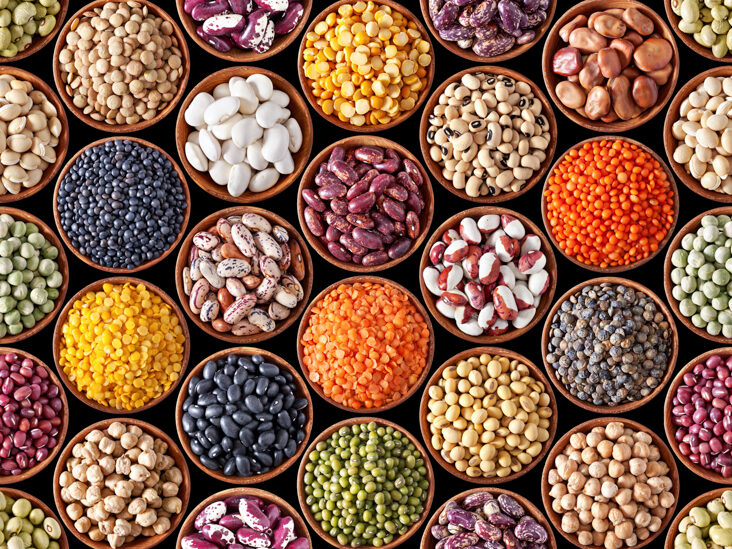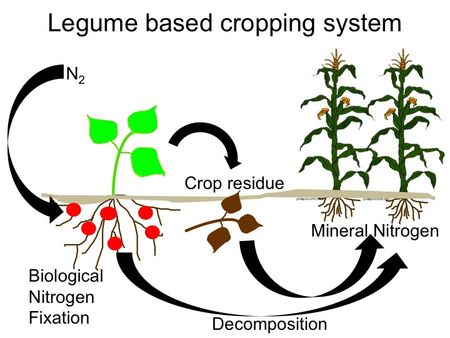
Legumes stand a great chance at mitigating climate change by reducing fossil fuel use or by providing feedstock for the emerging biobased economies where fossil sources of energy and industrial raw materials are replaced in part by sustainable and renewable biomass resources (Jensen et al., 2012).
The use of nitrogen (N) fertilizer from legumes is another approach to reducing greenhouse gas emissions and reducing the use and production of chemical N fertilizer that is very energy-intensive and leads to emissions of greenhouse gases from fossil energy consumption and from nitrous oxide generation. Creating an energy-efficient organic fertilizer using nitrogen from natural N2 fixation is beneficial for the environment and decreases greenhouse gas emissions. The N fertilizer from legumes can be used on non-legume cash crops (Stinner, 2015).

The IPCC Report on ‘Climate Change and Land/ 2019’ highlighted that including plant-based food items as part of the ‘low greenhouse gas emission diet’ stands a good chance of mitigating the impacts of climate change while addressing the need for healthy and nutritious food for a rapidly growing population (IPCC, 2019).
References
Jensen, E.S., Peoples, M.B., Boddey, R.M., Gresshoff, P.M., Hauggaard-Nielsen, H., JR Alves, B. and Morrison, M.J., 2012. Legumes for mitigation of climate change and the provision of feedstock for biofuels and biorefineries. A review. Agronomy for sustainable development, 32(2), pp.329-364. https://link.springer.com/content/pdf/10.1007/s13593-011-0056-7.pdf
Stinner, P.W., 2015. The use of legumes as a biogas substrate-potentials for saving energy and reducing greenhouse gas emissions through symbiotic nitrogen fixation. Energy, Sustainability and Society, 5(1), pp.1-7. https://energsustainsoc.biomedcentral.com/track/pdf/10.1186/s13705-015-0034-z.pdf
IPCC. 2019. Climate Change and Land. An IPCC Special Report on climate change, desertification, land degradation, sustainable land management, food security, and greenhouse gas fluxes in terrestrial ecosystems. https://www.ipcc.ch/site/assets/uploads/2019/11/SRCCL-Full-Report-Compiled-191128.pdf
